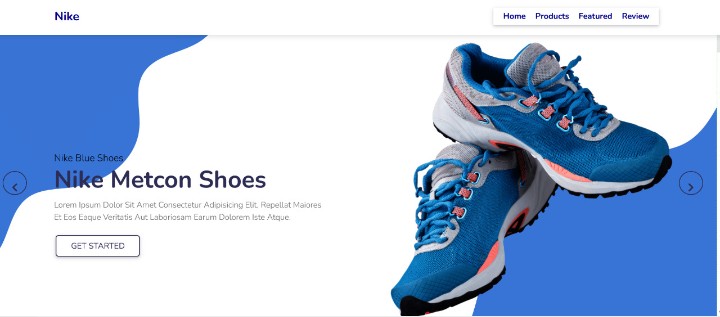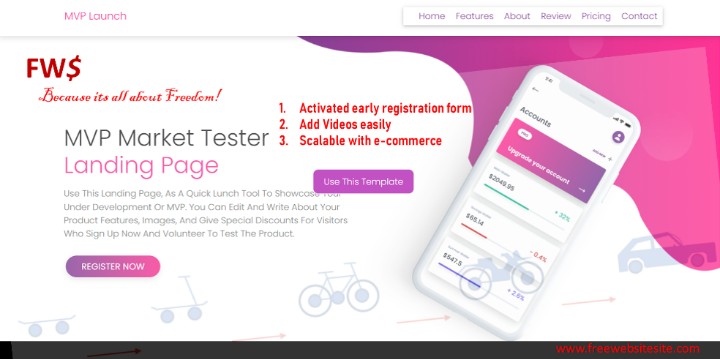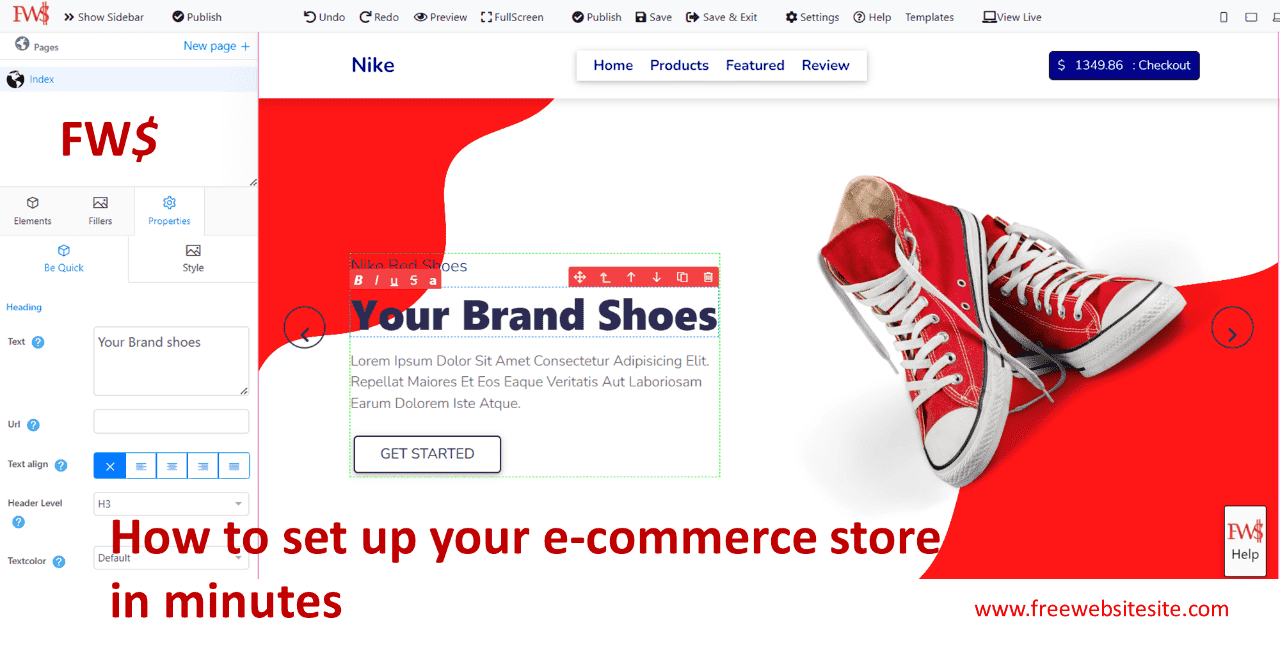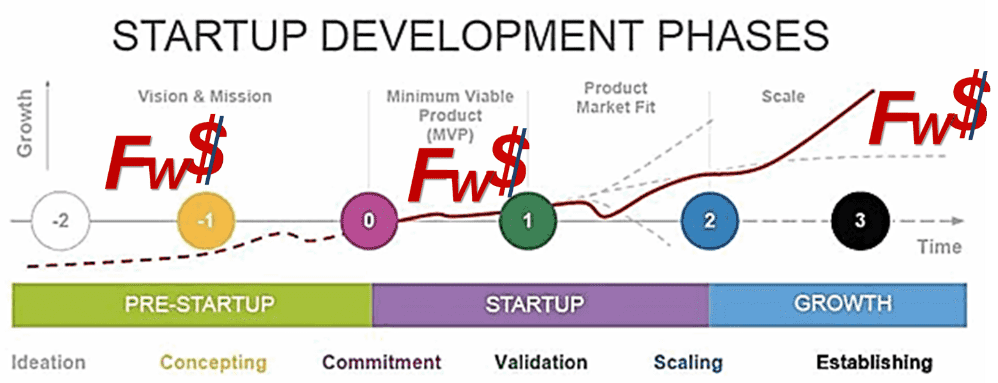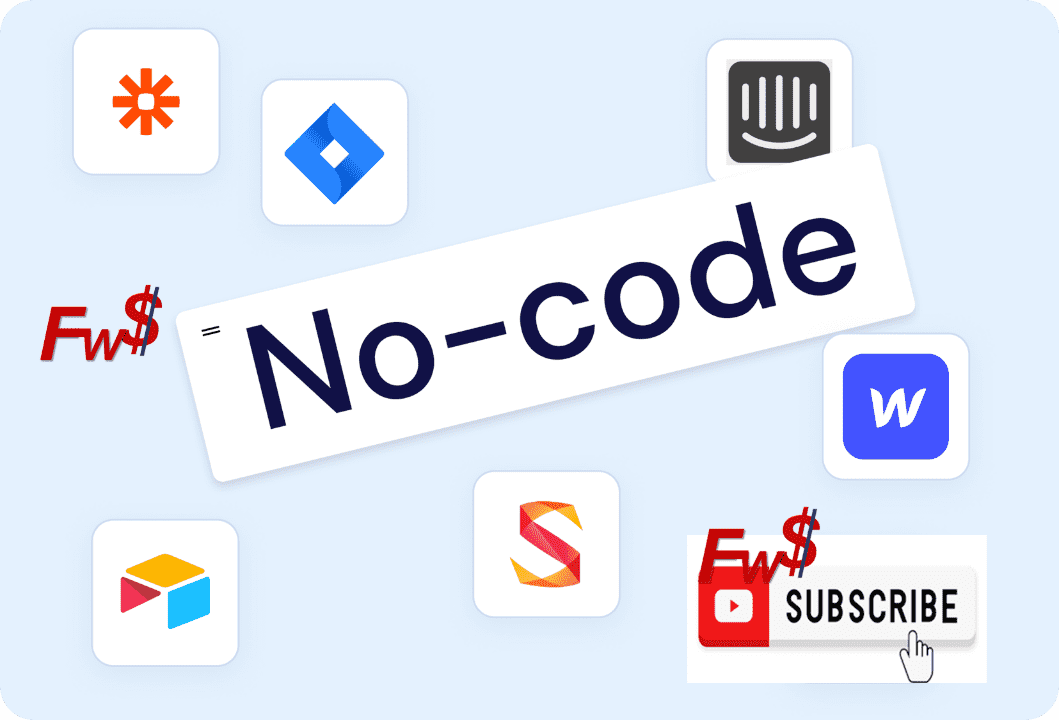SEO for Startups: How to Optimize Your Website Without Hiring an Expert
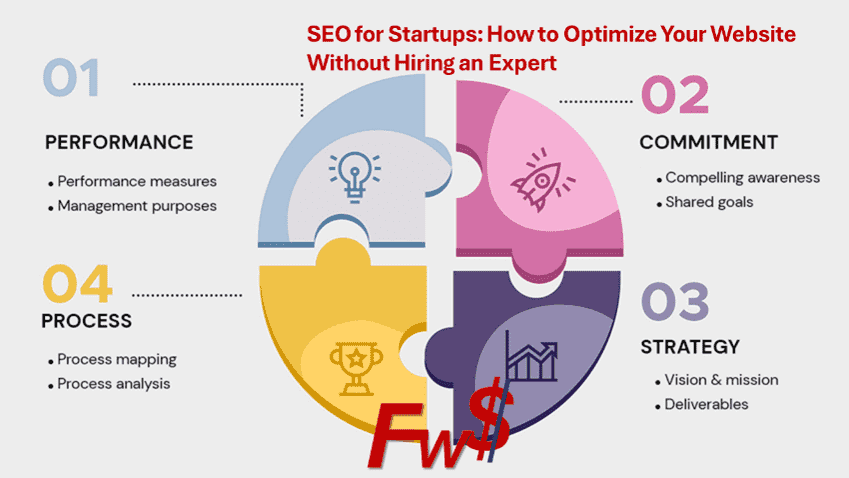
SEO for Startups: How to Optimize Your Website Without Hiring an Expert
In today's digital landscape, having a strong online presence is essential for startups to thrive. Search Engine Optimization (SEO) is one of the most critical components of building that presence, ensuring your website appears at the top of search engine results. For startups operating on limited budgets, hiring an SEO expert might not always be feasible. Fortunately, there are several strategies you can employ to optimize your website without needing expert help.
In this comprehensive guide, we’ll break down the key steps to effectively optimize your website for SEO—without hiring an expert.
What Makes a Website Rank High?
Before diving into the "how-to," it's important to understand what drives high rankings on search engines like Google and Bing. Websites rank highly based on relevance, quality of content, and a positive user experience. Google algorithms prioritize pages that meet user intent, contain valuable information, load quickly, and provide secure browsing.
Top-ranking websites are typically characterized by:
- Long-form, useful content: Pages with more than 800 words often rank higher because they provide thorough answers to users’ queries.
- Effective use of keywords: Successful websites incorporate targeted keywords throughout their content, metadata, and headings.
- Backlinks: High-quality links from authoritative sites signal to Google that your content is trustworthy.
Pages Ranking for “SEO for Startups: How to Optimize Your Website Without Hiring an Expert”
To provide practical insights, let’s examine three top-ranking pages for this search query:
- Cloudways offers a detailed guide focusing on technical SEO elements like XML sitemaps, security protocols, and AMP (Accelerated Mobile Pages). The page emphasizes long-form content, effective keyword research, and rich snippets, key tactics for SEO success.
- SEMrush highlights how to conduct keyword research and create genuinely useful, search-intent-based content. It also guides startups on competitor analysis, using tools like the Keyword Gap tool to find missing opportunities.
- Startup Voyager presents an actionable 12-step SEO strategy that includes keyword clustering, building backlinks, and content optimization focused on user experience and search intent.
These pages rank highly because they address users' core concerns (how to do SEO effectively), provide actionable advice, and are structured for easy navigation. Long-form content, rich use of keywords, and clear, helpful headings make these guides stand out.
Now, let’s walk through how you can replicate their success and optimize your website for SEO without hiring an expert.
1. Conduct Thorough Keyword Research
The first step in optimizing your website is understanding what your potential customers are searching for. Keyword research will reveal the terms and phrases your audience is using, helping you craft content around those search terms.
How to Do Keyword Research
- Use Free Tools: Tools like Google Keyword Planner, Ubersuggest, or Answer the Public can help you discover relevant keywords and phrases related to your business.
- Focus on Long-Tail Keywords: Long-tail keywords are more specific and often less competitive, making them easier to rank for. For example, instead of targeting "SEO," a broad term, you might focus on "SEO tips for new e-commerce sites."
- Analyze Competitors: Tools like SEMrush’s Organic Research feature allow you to find out which keywords your competitors are ranking for, giving you insights into untapped opportunities.
Pro Tip: Use Your Keywords Wisely
Include your target keywords in:
- Titles
- Meta descriptions
- URL slugs
- Headers (H1, H2, H3 tags)
- Image alt texts
Avoid keyword stuffing. Google penalizes over-optimized content, so keep your use of keywords natural and user-friendly.
2. Create High-Quality, Engaging Content
Content is still king in the SEO world. Startups can significantly enhance their rankings by focusing on creating valuable, relevant, and well-researched content.
Steps to Create Quality Content:
- Address User Intent: Understand why users are searching for a term. Are they looking for information, trying to make a purchase, or comparing products? Align your content accordingly.
- Provide Solutions: Your content should aim to solve the problems or answer the questions users are searching for.
- Maintain a Content Calendar: Consistency is key to SEO success. Posting fresh content regularly signals to Google that your site is active.
Long-form content tends to perform better in search rankings. Aim for 1,500+ word articles, which have been shown to earn more backlinks and social shares, leading to better rankings.
Example: Blog Posts and Articles
Write blog posts that cover various aspects of your industry, from how-to guides to case studies. Using tools like Google Analytics can help you identify topics that resonate most with your audience.
3. Optimize for On-Page SEO
On-page SEO refers to optimizing individual pages to rank higher on search engine results. This includes everything from your website's content to its structure and internal linking.
Key On-Page SEO Techniques:
- Optimize Meta Descriptions and Title Tags: These elements are crucial for search engines to understand the relevance of your pages. Craft compelling, keyword-rich meta descriptions and title tags to increase your click-through rates (CTR).
- Use Internal Links: Link relevant blog posts or landing pages within your website. This helps users navigate your site easily and also improves search engine indexing.
- Ensure Fast Page Load Times: Page speed is a ranking factor for Google. Use tools like Google PageSpeed Insights to identify issues that slow down your site.
- Make Your Site Mobile-Friendly: With the rise of mobile searches, having a responsive design is a must. Ensure that your website is easy to navigate on both desktop and mobile devices.
4. Focus on Technical SEO
While content is critical, technical aspects of SEO can’t be ignored. These are the behind-the-scenes elements that help search engines crawl, index, and rank your website.
Key Elements of Technical SEO:
- HTTPS: Ensure your website is secure by switching to HTTPS. Google prioritizes sites that protect user data.
- XML Sitemap: Create and submit an XML sitemap to Google Search Console. This helps search engines understand your site's structure and index your pages more efficiently.
- Fix Broken Links: 404 errors and broken links can harm your SEO. Use tools like Screaming Frog to crawl your site and identify broken links to fix.
5. Build Backlinks
Backlinks—links from other websites to yours—are one of the most important ranking factors for search engines. They signal that your content is valuable and credible.
How to Build Backlinks:
- Guest Posting: Write articles for reputable blogs in your industry and include a link back to your site.
- Create Shareable Content: Infographics, case studies, and original research are highly shareable and can naturally attract backlinks.
- Reach Out for Mentions: If your company is featured or mentioned elsewhere on the web, ask the site owner to include a link back to your website.
Backlinks are essential for growing your website's authority and improving your SEO ranking.
6. Leverage SEO Features on Platforms Like FreeWebsiteSite.com
If you're using a website builder like FreeWebsiteSite.com, many technical SEO tasks are simplified. These platforms allow you to:
- Integrate Google Analytics for tracking performance.
- Easily update metadata and alt text for images.
- Enable mobile responsiveness across all pages.
- Use pre-designed, SEO-friendly templates that are optimized for speed and user experience.
This combination of features ensures you can focus on your content while the platform handles many technical aspects of SEO.
7. Measure and Adjust
Lastly, SEO isn’t a "set it and forget it" task. Continuously monitor your website’s performance using tools like Google Analytics and Search Console. Keep an eye on metrics like:
- Organic traffic
- Bounce rate
- Average session duration
Make adjustments based on this data to improve your content, page structure, and technical elements.
Conclusion
Optimizing your startup's website for SEO doesn't require hiring an expert. By focusing on keyword research, high-quality content, on-page SEO, and technical optimization, you can significantly improve your rankings and drive more traffic. Platforms like FreeWebsiteSite.com make it easier by offering built-in SEO features, allowing you to focus on creating a great user experience.
As your site gains authority and traffic, you’ll build a solid foundation for long-term growth—without breaking the bank.
Related Templates
Search Engine Optimization (SEO) is the backbone of any online strategy, and startups—especially those with limited budgets—often face challenges in implementing robust SEO without expert help. The good news is that SEO doesn't always require a specialist. With careful planning, research, and the right tools, startups can build and maintain an optimized website that drives organic traffic and conversions.
Understanding the Basics of SEO
To optimize a website effectively, it’s essential to understand the key factors that influence search engine rankings. Google's algorithms prioritize high-quality content, relevance, user experience, and authority. These algorithms are complex and continually evolving, but the core principles remain the same: content relevance, proper use of keywords, backlinks, and user satisfaction.
Statistics to Support SEO Efforts
- Organic search drives 53% of website traffic for most industries, compared to just 15% from paid search. Organic traffic is often a long-term and sustainable source of visitors.
- Websites that rank on the first page of Google results capture over 90% of all search traffic
- Pages with more than 2,000 words of content are far more likely to rank in the top 10 than those with fewer words. Longer, informative articles not only attract more backlinks but also satisfy user intent.
These statistics highlight the importance of investing in SEO, especially when paid channels may not be viable due to budget constraints.
1. Conduct Thorough Keyword Research
Keyword research is the bedrock of SEO strategy. Understanding which words or phrases your target audience is using will help you position your startup more effectively. The right keywords allow you to create content that matches search intent, which is crucial for ranking well on search engines.
The Importance of Keyword Research
Studies show that 75% of users never scroll past the first page of search results(Startup Voyager). This makes it imperative for startups to identify low-competition, high-intent keywords that will attract their target audience. Tools like Google Keyword Planner, Ahrefs, or Ubersuggest allow you to explore search volumes, competition levels, and keyword difficulty.
Case Study: Using Long-Tail Keywords
Long-tail keywords—specific, lower-competition phrases—can be particularly beneficial for startups. For example, instead of targeting "SEO services," a highly competitive term, a better focus could be on a more niche, long-tail keyword like "SEO for small retail businesses." Long-tail keywords often result in higher conversion rates because they address specific user needs.
By focusing on these long-tail phrases, startups can rank higher in search results faster, generating traffic that converts better than broad, high-competition terms.
2. Create High-Quality, Engaging Content
Content remains one of the most crucial ranking factors. Google's algorithm evaluates whether your content answers user questions effectively and matches the search intent behind a query.
Supporting Theories: E-A-T
Google uses the E-A-T (Expertise, Authority, Trustworthiness) framework to assess content quality. Sites that consistently offer valuable, trustworthy, and authoritative information are favored. This is why high-quality, original content is crucial. Your content should solve user problems, provide new insights, and be structured in a user-friendly manner.
Statistical Evidence
A study by HubSpot showed that companies publishing 16+ blog posts per month generated 4.5 times more leads than companies that published 0-4 posts(Startup Voyager). Additionally, Google ranks in-depth content higher—pages with at least 2,000 words receive more backlinks, which are another key ranking factor(Startup Voyager).
Case Study: How FreeWebsiteSite.com Can Help
Platforms like FreeWebsiteSite.com simplify content management, allowing you to quickly update blogs, create SEO-friendly pages, and track user engagement through Google Analytics integration. With pre-designed templates, startups can focus on crafting high-quality content, while the platform handles the technical aspects, such as fast loading speeds and mobile optimization—critical for SEO success.
3. Optimize for On-Page SEO
On-page SEO involves optimizing individual web pages so they rank higher and drive relevant traffic. This includes improving title tags, meta descriptions, and URL structures, all of which contribute to better rankings.
Optimizing Meta Tags
Title tags and meta descriptions are the first things users see on search engine results pages (SERPs). According to Moz, 36% of clicks go to the first organic result on Google(Startup Voyager). Optimizing your meta descriptions to include relevant keywords can significantly improve your click-through rate (CTR).
The Role of Internal Linking
Internal linking is another key on-page SEO tactic. By linking relevant blog posts and pages to each other, you create a logical flow for both users and search engines. Internal links improve user engagement by encouraging visitors to stay longer on your site, reducing bounce rates and increasing the likelihood of conversions.
FreeWebsiteSite.com's On-Page SEO Features
FreeWebsiteSite.com makes on-page SEO optimization simple. With a built-in editor for titles, meta descriptions, and alt tags for images, even non-technical users can ensure their site is well-optimized for SEO. These SEO-friendly templates help businesses create a consistent, optimized presence across all pages, whether it's a blog post or a product listing.
4. Build Backlinks for Credibility and Authority
Backlinks remain one of the most influential SEO ranking factors. A study by Ahrefs found that the number of domains linking to a page strongly correlates with its position in the search results. The more high-quality backlinks a website has, the higher its chances of ranking.
Case Study: Backlinks from Authoritative Sources
A startup focused on local SEO for restaurants might consider partnering with food bloggers or submitting guest posts to food and lifestyle publications. These backlinks from authoritative, industry-relevant sites signal to Google that your content is valuable.
Incorporating social proof, such as customer testimonials or case studies from satisfied clients, can also increase your site's trustworthiness, leading to better rankings.
5. Leverage Technical SEO
Technical SEO refers to non-content elements of your website that influence how well it can be crawled and indexed by search engines. This includes page speed, mobile-friendliness, and secure browsing (HTTPS). A fast, secure site improves user experience, which is essential for ranking.
Data Supporting Technical SEO
Google has indicated that page speed is a ranking factor, especially for mobile searches. Studies show that 53% of users will abandon a page if it takes longer than 3 seconds to load(Startup Voyager). Additionally, websites that are not mobile-optimized lose a significant amount of traffic, as mobile traffic accounts for over 50% of web visits worldwide(Startup Voyager).
FreeWebsiteSite.com’s Role in Technical SEO
With FreeWebsiteSite.com, startups can leverage fast, secure, and mobile-friendly templates without needing technical expertise. The platform's built-in HTTPS security, automatic XML sitemaps, and mobile-responsive designs ensure that your site meets the technical criteria for high SEO rankings.
6. Track and Adjust SEO Performance
Once your site is optimized, it’s crucial to track performance and adjust your strategy accordingly. SEO is not a one-time task—it requires continuous monitoring and tweaking.
Tools for Tracking SEO Success
Tools like Google Analytics and Google Search Console allow you to monitor organic traffic, bounce rates, and conversion paths. By understanding which keywords are driving the most traffic, you can refine your content strategy.
The Role of SEO in Startup Success
A study by BCG underscores the need for early digital strategy, particularly SEO, as a core component in startup growth. According to a recent BCG report, companies with a well-planned digital marketing strategy can outperform competitors by as much as 20% in their first year of operation(BCG Global). For startups, SEO is especially crucial since it allows for high visibility and cost-effective customer acquisition without requiring significant capital upfront, a key advantage when resources are tight.
SEO Techniques to Optimize Without an Expert
BCG's insights into digital transformation suggest that the primary challenge for startups is to adopt "agile digital practices" early(BCG Global). Applying SEO principles, such as using keyword research tools, optimizing for mobile, and utilizing content that speaks to your audience's intent, provides a significant boost to rankings. The key takeaway from studies conducted by MIT Sloan is that startups must continuously adapt their SEO strategy as the market and algorithms evolve(BCG Global).
Statistics: Organic Search and Startups
For startups, organic search is an important lifeline. According to research by HubSpot, 61% of marketers believe improving SEO and growing their organic presence is their top inbound marketing priority. Additionally, websites that regularly update their content with SEO best practices are 13x more likely to see a positive return on investment. Google's algorithm prioritizes websites that are consistently updated, mobile-optimized, and feature rich, keyword-optimized content.
Case Study: Women-Owned Startups Thriving Through SEO
A report by MassChallenge in collaboration with BCG found that women-owned startups generated 10% more revenue over five years compared to male-led companies, despite receiving significantly less funding(BCG Global). This was largely attributed to cost-effective digital marketing strategies, including SEO. By focusing on strong SEO foundations, these businesses were able to generate higher traffic and customer engagement at lower costs.
The Psychological Appeal of SEO-Driven Results
When considering the psychological drivers that make SEO compelling, the ethos and pathos come into play. SEO gives startups the credibility (ethos) to compete with larger businesses because a high ranking on Google signals trustworthiness and authority. From a pathos perspective, a well-optimized website draws in customers with a smoother, more enjoyable user experience—whether they are browsing or purchasing.
How FreeWebsiteSite.com Supports SEO for Startups
FreeWebsiteSite.com offers integrated SEO tools that enable startups to optimize their websites effectively without hiring experts. Features like Google Analytics integration provide real-time insights into traffic sources, visitor behavior, and SEO performance, allowing entrepreneurs to make data-driven decisions. With drag-and-drop editing, changing on-page SEO elements like meta descriptions and alt texts is effortless, and the platform’s one-click publishing ensures consistent updates across all pages and even across multiple locations or stores, reflecting immediately in search engine rankings.
Link to Authority: Scaling with Ecosystems
Drawing on BCG's business ecosystem model, startups must realize that SEO isn’t just about optimization in isolation. A well-developed SEO strategy places the startup in a broader business ecosystem that builds lasting partnerships and joint value creation(BCG Global). This model explains why platforms like FreeWebsiteSite.com are integral, as they enable startups to seamlessly connect their websites with complementary platforms and services, scaling their SEO and business goals in tandem.
Takeaways
Startups that invest in their SEO early and use platforms like FreeWebsiteSite.com to optimize continuously will see measurable growth. Incorporating agile SEO strategies, monitoring analytics, and regularly updating content will help startups rank higher on Google, driving traffic and improving customer acquisition.
For a full analysis on SEO and how it impacts startup growth, you can explore (BCG Global)(BCG Global) or dive into MIT Sloan’s work on business transformation.
Conclusion
SEO is a crucial aspect of digital marketing for startups, but it doesn’t need to break the bank. With the right tools, research, and effort, you can optimize your site without needing an expert. Platforms like FreeWebsiteSite.com simplify this process by offering all-in-one SEO features, from mobile-optimized templates to seamless Google Analytics integration.
By following these strategies, your startup can grow its online presence, drive more organic traffic, and ultimately convert more visitors into loyal customers. Ready to get started with your SEO journey? Try FreeWebsiteSite.com and unlock the potential of your website today!
